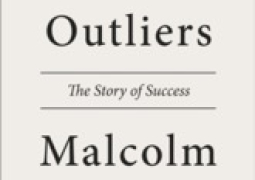
Famara Fofana
Fulladu Publishers, 2017; 56 pages
“Childhood is but a short time, a fleeting moment of your life you wish could have stayed. The most interesting thing about childhood memory is that mostly they are not yours alone.”
Famara Fofana has taken this quotation to task in his “Recollections of an African Child” to present an amazing chronicle of his bruised knees and lucky breaks in his village in the North Bank Region. The autobiography published by the Fulladu publishers in2017narrates the life of ayoung, vibrant, underprivileged but happy and contented African child growing up in an idyllic traditional setting in rural Gambia.
With the use of figurative language and captivating storytelling, the author captures the daily rituals that are the hallmarks of village life. This primer for anyone who has never experienced the village teases those moments of our yearning for the old ways and values of sacredness in The Gambia.
With insightful reflection Fofana openly and eloquently uses local phrases, predominantly in Mandinka, to give a powerful imagery of how events played out in his childhood and illustrates with consuming sentiment how our childhood experiences affect behaviour and character into adulthood even if we were not aware of the connection. Manhood and age, alas, fall in the continuum of what was on our journey to fulfilling our desires today.
The book shows the mind-set of Greater Banjul, the “Kombo Tubaab Bankoo”, the village name for the land of the white people. It vouches that the village is a good place for the upbringing and nurturing of kids as the reader will enjoy in the experience of the twins who are brought to the village to smoothen their loose edges from the Kombos.
Powerful English highlights a clear imagery of his environment, personifying beautifully in the description of an incident when his friend Cho nearly drowns among“…waves clapping and knocking each other in fury.” The use of local dialects such as Wolof and predominantly Mandinka showcases the author’s taste for culture and his local setting. While this style is rich, yet it risks some trouble with readers who do not understand Mandinka, not even with a glossary at hand at the back; flipping back and forth interrupts the free flow in such a nice read. Ndeysaan, one of the many phrases carries strong emotions in the people’s cries in heart-touching moments.
The memories are rich in their exploration of the blissful and life of good training of a village boy. Such joy with diction pervades the author's narration of the happy and adventurous lifestyle he and his company of friends lived. The carefree and risky play in the swamps, guarding the farm fields with their “Lasperoo” and the sometimes-chaotic hunting trips which result in a peace dialogue among parents. That includes too sad memories when he loses a goat just as he lost his young friend to the bite of a snake during their hunting adventures. Next to the narration of match making, gossiping, and storytelling under the gaze of the full moon, the story is touching.
The description is vivid how hard-nosed young boys engage in or instigate corner fights or when he and his comrades engage in gang attacks on youngsters from other villages and seize their Koriteh and Tobaski Salibo collections but show unmatched puerile fury with those adults who offer only prayers for a sojourn to mecca in their lifetime instead of giving cash. Innocent but honesty anger for a young child who grew up to be a man of norms and values.
Myths and superstition play their role in his upbringing from the rites of initiation and the outdooring of a child, to the Neema jiyo, in which old women do the rain chants during drought, a ritual the village marabou Oustass Manneh condemns. Also, women must not put on their husband’s clothing to make the offering of dipping red-hot charcoal in the bucket of water to exorcize evil spirits. But the author’s own father gives him concoctions to drink to make him cleverer for the examinations at school. The village boy celebrates the spiritual and the mystical powers are at play in the masquerades, perhaps the most significant of them being Kankoranno, the guardian of the school of circumcised boys.
“Recollection of African Child” is a treat for young children to refocus their minds on the customs. It is a definite feast for those whose memory of their childhood in the village has fogged over with the ups and downs of life. It is an ever ready opportunity to step back and relish past moments in what could well be slipping gently away under the weight of the electronic and technological distractions of urban life.




